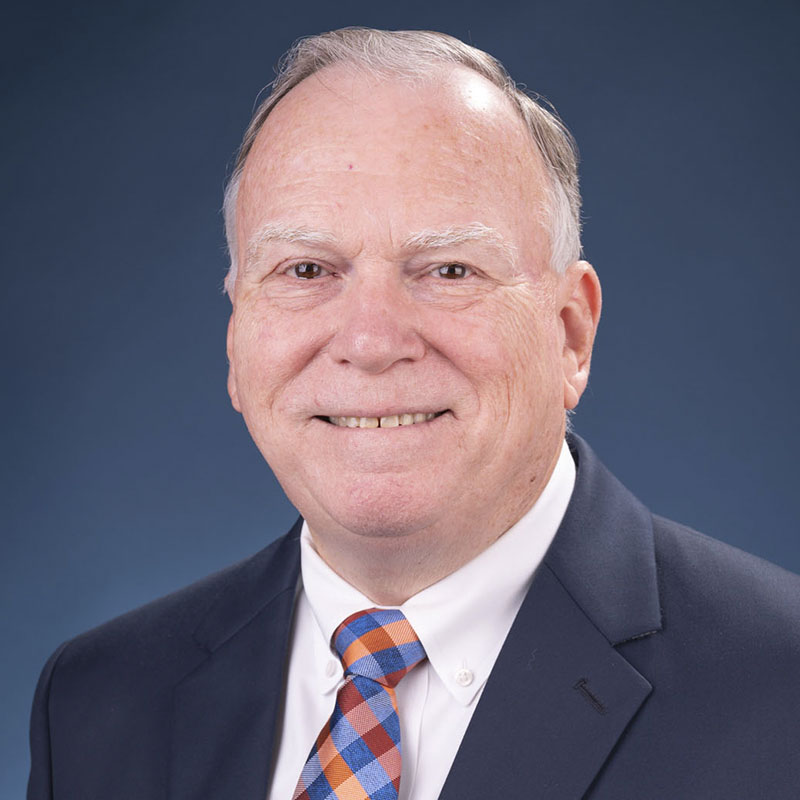This open letter was written a month before the U.S. election to the one who will carry the heavy responsibility of the presidency.
Dear Mr. or Madam President-Elect of the United States,
Writing one month before the election, it’s unclear to whom this letter should be addressed. But that matters not—the message is the same for either of you, former President Trump or Vice President Harris.
Please forgive me if it seems presumptuous for some unknown to offer unsolicited words to the new leader of the free world. Nevertheless, they come from the heart and express, I believe, sentiments of at least a small segment of citizens in both the United States and rest of the world.
I know you are not the spiritual leader of this country, nor is that your responsibility. But you have declared your belief in God, you appealed fervently to religious constituents for their votes, and you likely will add the traditional ending, “So help me God,” to your oath of office. I hope you utter those four words with deep solemnity, because missteps in dealing with the many crises you face hold deeply solemn consequences.
Long ago a wise man warned, “Righteousness exalts a nation, but sin is a reproach to any people” (Proverbs 14:34). While our founding fathers established the official separation of church and state, this proverb’s truth remains: It is impossible to separate a nation’s state of righteousness—its character, its moral fiber—from its eventual fate. Spiritual values are, in reality, the basis of character and morals.
Call it what you will—righteousness and sin, or good and evil—wherever one stands on the spectrum of religious belief, it’s hard to argue with this simple premise: Doing right lifts up a nation; doing wrong tears it down. But what is right and wrong? That “we the people” cannot reach a consensus on this in so many issues sadly testifies to our moral confusion.
May we ask then, what is your personal platform on righteousness and sin, on good and evil? Assuming you’ll swear on a Bible, can we assume you totally agree with it? If not, then why ask for God’s help in your leadership? If so, can we hear assurance that your definitions of “righteousness” and “sin” are the same as what we read in God’s Word? Furthermore, can we have assurance that you know what God expects, regarding righteousness, of the one wearing the mantle of leadership?
God wants, and we need, to see more than outward appearances. A president occasionally stepping inside a church, quoting Scripture, hobnobbing with religious people, or even publicly praying may impress people, but not God. God says He looks on the heart, on our inner character, to see if we do the right things (by His definition, not human opinion) for the right reasons.
Revisiting the latter half of the proverb, the opposite of righteousness is sin (again, per God, not human opinion). When sin finds a foothold in an individual or a nation, it compromises and erodes character. Weak character gives rise to bad choices, and all choices cause consequences. Sin’s inescapable result is “reproach.” National reproach takes many forms, often beginning with disappointment and disrespect from one’s allies, and ultimately ending with disgrace and defeat from one’s enemies.
Mr. or Madam President, many of us fear for our country—and the world. We see the handwriting of reproach on the wall, and its message is dire. Both of you as candidates seemed to share that fear since you both campaigned on warnings that the nation’s future was at stake in this election. But I’m not sure we’re reading the same handwriting as either of you. You represent the opposing views reflecting a nation no longer “indivisible.” We the people are hopelessly riven by concepts from one extreme to another of “morality.” We are deeply into a civil war, not fought with physical weapons, but with the weapons of philosophies and practices that assault the soul of a people—a cultural, moral and spiritual war.
The handwriting on the wall many of us read states, “Every kingdom divided against itself is brought to desolation, and every city or house divided against itself will not stand” (Matthew 12:25). That is God’s warning. That every past kingdom of man has fallen bears witness to God’s truth!
Yet “the LORD looks down from heaven at the human race,” David wrote, “to see if there is anyone who is wise and seeks God” (Psalm 14:2, NET Bible). God stands ready to help, but only if we—all of us, not one political party or the other—stand ready to humbly seek His help.
If not, our Achilles’ heel lies exposed. Democracy’s inherent weakness is found in its very definition, “the people rule”—not God. It works for a while, but when “we the people” claim rule over defining the ideals of right and wrong, good and evil, and depart from seeking and obeying God, we have sown the seeds of our eventual desolation and fall.
When God looks down from heaven now to observe who seeks Him—those whose slogan is “In God We Trust”—what does He see? What does He see in our leaders?
There were times when some who governed seemed to genuinely believe that we could survive only with God’s help and blessing, and unashamedly called on the nation to seek Him.
In World War I President Woodrow Wilson declared a national day of fasting, “humbly and devoutly to acknowledge our dependence on Almighty God and to implore His aid and protection.” He went so far as to boldly say, “I . . . exhort my fellow-citizens . . . to pray Almighty God that He may forgive our sins.”
Fifty-five years earlier, in the Civil War’s dark days, President Abraham Lincoln also called for “a day of national humiliation, fasting, and prayer.” His proclamation rings even more true today:
“We have been the recipients of the choicest bounties of Heaven; we have been preserved, these many years, in peace and prosperity; we have grown in numbers, wealth and power as no other nation has ever grown. But we have forgotten God. We have forgotten the gracious hand which preserved us in peace, and multiplied and enriched and strengthened us; and we have vainly imagined, in the deceitfulness of our hearts, that all these blessings were produced by some superior wisdom and virtue of our own. Intoxicated with unbroken success, we have become too self-sufficient to feel the necessity of redeeming and preserving grace, too proud to pray to the God that made us.
“It behooves us then, to humble ourselves before the offended Power, to confess our national sins, and to pray for clemency and forgiveness.”
Humble ourselves? Confess our sins? Pray for forgiveness?
Today, I expect many would find repugnant and loudly protest such a summons, and a president promoting such ideals would subject himself to public ridicule. Such is the sad spiritual state of our union.
Nevertheless, this is the highest level of leadership and statesmanship that the nation needs. In 1982 President Ronald Reagan boldly asserted, “We need God more than He needs us.”
On another occasion, he stated, “If we ever forget that we are one nation under God, then we will be a nation gone under.”
Mr. or Madam President, what are your thoughts on that? Some among us perceive that our problems and our need for God loom even larger than four decades ago. We’ve long seen the signs of sliding toward becoming “a nation gone under,” regardless of which political party’s in power.
I don’t know your personal thoughts about God, or how you involve Him in your daily life. But if you ask, “So help me God,” it would be prudent to remember that He “gives grace to the humble” (Proverbs 3:34).
Sycophants and agenda-chasers tend to heap praise upon presidents, the greatest flattery being that God placed you in this position because of your uprightness, your policies or His favor on you personally. Charming talk can be heady, and it’s the rare person who walks humbly before God, ever mindful that “pride goes before destruction, and a haughty spirit before a fall” (Proverbs 16:18). The once proud and powerful Nebuchadnezzar learned the hard way “that the Most High rules in the kingdom of men, gives it to whomever He will, and sets over it the lowest of men” (Daniel 4:17). A cautionary tale, indeed.
The reproach of the Civil War humbled Lincoln, and during that low time someone asked him if God was on his side. “Sir, my concern is not whether God is on our side,” said the president. “My greatest concern is to be on God’s side, for God is always right.” Cautionary words for today, indeed.
No, you cannot shape the nation’s spiritual state. But like many presidents before you, you do hold the power of rhetoric to put God into the forefront of its consciousness, if you dare. You have a platform from which you can shine a light on our spiritual needs, if you see them. You can exhort us to consider our greatest needs—humility, turning to God, confession of sins, forgiveness, obedience—if you lead the way. What we do with that is up to us, but upon what, and upon whom, you seek to set our eyes is up to you.
I earnestly pray that He will look down and see you wisely seeking Him.
So help us God.
Clyde Kilough






